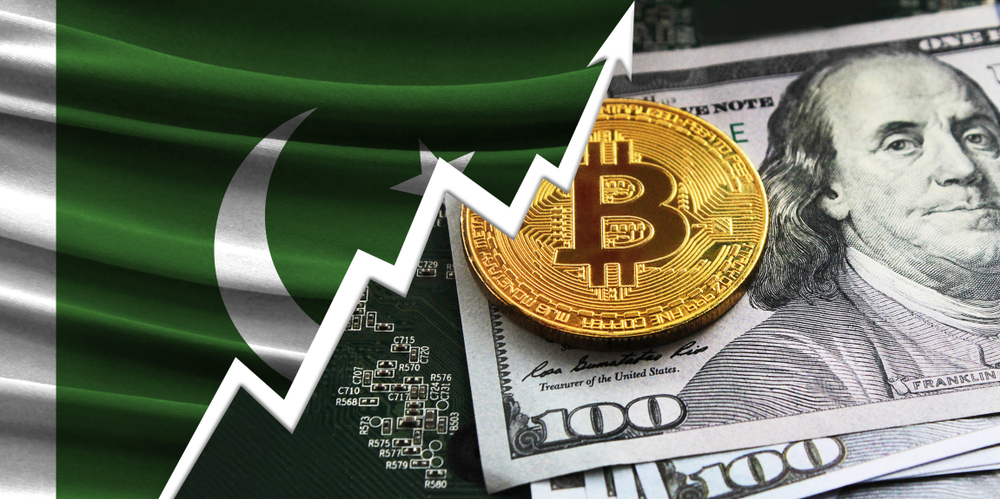The statement by Finance and Revenue Minister Aisha Ghaus Pasha on Wednesday, May 17, unveiled the fresh banning of cryptocurrencies in the country. The latest move affirms the hardened stance of the Pakistan government at a time retailers are readily adopting cryptos for hedging.
Pakistan Imposes Fresh Crypto Ban
The motive to impose a fresh ban is surprising the retailers considering the Pakistani rupee is devaluing. The retailers are yet to come to terms with the restrictive stance adopted by the Pakistan government despite the currency devaluing owing to a volatile political situation.
Minister Pasha informed the Senate Standing Committee that Pakistan resolved never to legalize cryptocurrencies. She informed the senate hearing that the Financial Action Task Force (FATF) was futuristic in illegalizing crypto use in the country.
Minister Pasha clarified that imposing the fresh crypto ban is necessary to remove Pakistan from the grey list of the international finance watchdog. The global digital assets community stakeholders attribute the move as one guided by the FATF conditions to ban cryptos.
Pakistan Banks Warn Customers of Crypto Illegality
Pasha demonstrated that the prohibitive stance of the government aligns with the desires of the State Bank of Pakistan (SBP). Besides the central bank, the Information Technology Ministry also initiated a process to ban cryptos parallel to the one undertaken by SBP in January 2022.
The move to ban digital assets is prompting Pakistan banks to inform clients to refrain from cryptos trading considered illegal. The banks warn against the inherent risk and illegality of executing crypto-related payments.
The banks are referring to regulatory instructions issued by SBP that disallow direct and indirect remittance of foreign exchange to platforms involved in the margin, CFD trading, and exchange platforms.
A publication by Dawn on April 30 revealed that Pakistan banks served formal warnings to their customers against crypto-related transactions. The publication quoted the stern warning banks conveyed concerning using credit and debit cards to execute crypto trading.
Pakistan-based Wallets Realize Increased Trading Volume
Dawn’s article reveals the increased popularity of cryptos among Pakistani nationals. The publication quoted Rain Financial reports that estimated an increased volume of trading executed by the Pakistan-based wallets.
In particular, the Gul-based crypto trading platform estimates the annual trading as rising from $18 billion in 2020 to $20 billion in 2021. The country head of Rain Financial shows that annual trading will realize $25 billion in 2022.
Implementing a complete ban on crypto coincides with the ongoing political turmoil. The tense political climate involves the previous week’s arrest of former leader Imran Khan alleging corruption.
Although released following the Supreme Court ruling that the asset is illegal, the tense standoff is caused by the police raid on his Lahore City home.
Khan alleges that the police are seeking his arrest prompting the supporters to descend into massive protests in Pakistan. The resulting turmoil is fuelling the current decline of the rupee, which has now slid 3.3%. By last week, the decline was the lowest against the $300 greenback.
The political turmoil and financial instability are compelling Pakistan retailers to hedge by converting salaries into stablecoins. BlockTeck Pakistan, who also doubles as KTrade Securities chair Ali Farid Khwaja, expressed fears of sovereign default since the Pakistani government cannot get International Monetary Fund (IMF) support.
Pakistanis Consider Stablecoins a Gateway to Access US Dollars
Khwaja indicated that Pakistan nationals are acquiring USDT to secure their wealth in US dollars. He added that Bitcoin’s recent performance triumphs over the Pakistani Rupee.
During the recent crypto run, Khwaja estimated that over 20 million Pakistanis held accounts on digital assets platforms. A leading investor in blockchain, Bilal Saqib, observed that the accelerated depreciation of the Pakistani Rupee fuels the trend.
Saqib notes that the rupee value declined by 57% over the past 12 months. The experience stimulates the population to embrace stablecoins as a convenient channel to attain the US dollar.
Accessing the dollars via stablecoins is set to increase, considering the existence of import restrictions that make physical acquisitions of dollars unachievable. The crypto ban will only stimulate the Pakistanis to evade scrutiny in their pursuit of stablecoins.
